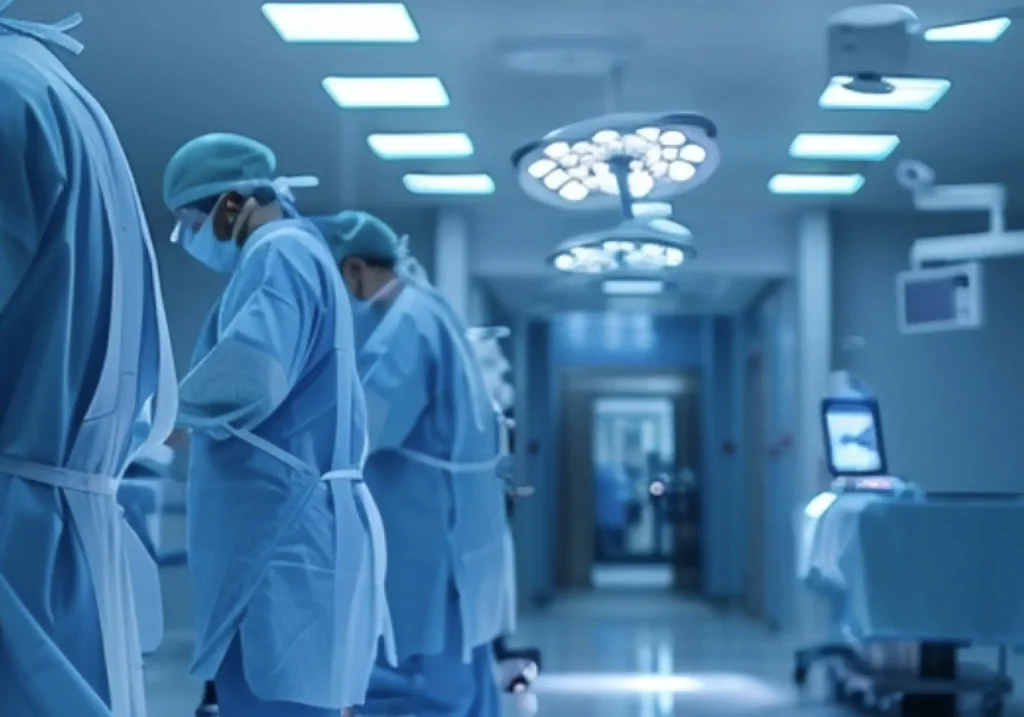How a Vision for Better Patient Care Sparked the Hola 5G Oulu Project
Imagine a hospital where doctors and nurses have instant access to critical patient information, where life-saving decisions are made faster, and where technology empowers caregivers to provide more personalized attention. This is the vision that fueled the Hola 5G Oulu project, a groundbreaking initiative transforming healthcare in Finland.
It all started with Jani Katisko, a passionate pursuer of healthcare innovation. He witnessed first-hand the challenges faced by doctors and nurses – the overwhelming workload, the constant pressure, and the struggle to balance efficiency with personalized patient care. He knew technology could help alleviate these burdens, but existing hospital infrastructure simply couldn’t keep up.

The problem was clear: data is the lifeblood of modern healthcare. Every diagnosis, every treatment decision, relies on a complex web of information – patient history, real-time vital signs, lab results, and medical images. But accessing and processing this data within the constraints of traditional networks was a major bottleneck. Doctors spent precious time navigating clunky systems and sifting through information, leaving less time for face-to-face patient interaction.
Then, a chance encounter sparked a solution. Jani met Petri Parviainen, a strong advocate for healthcare and people, who championed the potential of private 5G SA networks. Petri, with his expertise at Boldyn Networks, saw an opportunity to revolutionize healthcare by providing the robust, secure, and high-speed connectivity that hospitals desperately needed.
Together, they launched the Hola 5G Oulu project, a collaboration between the University of Oulu, Boldyn Networks, and WICOAR Technologies Oy. This ambitious project brought Europe’s first private 5G SA network to a functioning hospital – OYS – Oulun yliopistollinen sairaala.
What makes this project so revolutionary?
- Blazing-fast speeds and ultra-reliable connectivity: 5G allows for seamless data transfer, giving doctors instant access to critical information, even large medical images, right at the patient’s bedside.
- Enhanced mobility and flexibility: Wireless wearables can monitor patients in real-time, providing continuous data streams and freeing healthcare professionals from cumbersome equipment.
But the impact of these wearables goes far beyond simple monitoring. Imagine a surgeon receiving real-time, visualized data from a patient’s smart clothing during a procedure, or instantly consulting with a remote specialist who can see exactly what the surgeon sees. This technology opens up a world of possibilities, from remote diagnosis and treatment to innovative training methods for new doctors and nurses. With on-field imaging and data streamed directly from wearable devices, the future of medical education is truly immersive and interactive.
- Improved patient experience: With faster access to information and more efficient workflows, doctors can spend more time with patients, fostering stronger connections and providing more personalized care.
The Hola 5G Oulu project is not just about technology; it’s about putting patients, doctors, and nurses first. It’s about empowering caregivers with the tools they need to provide the best possible care, while creating a more efficient and compassionate healthcare system. This is just the beginning – Hola 5G Oulu is paving the way for a future where technology truly enhances the human touch in healthcare.
About Hola 5G Oulu:
Hola 5G Oulu is a pioneering initiative led by Boldyn Networks, in collaboration with WICOAR Technologies, Oulu University Hospital, Pohde and the University of Oulu. The project aims to leverage 5G technology and wearable solutions to enhance patient care, improve efficiency, and empower healthcare professionals. See more about the project here.
Funded by the European Union. Views and opinions expressed are however those of the author(s) only and do not necessarily reflect those of the European Union or European Health and Digital Executive Agency (HaDEA). Neither the European Union nor the granting authority can be held responsible for them.
